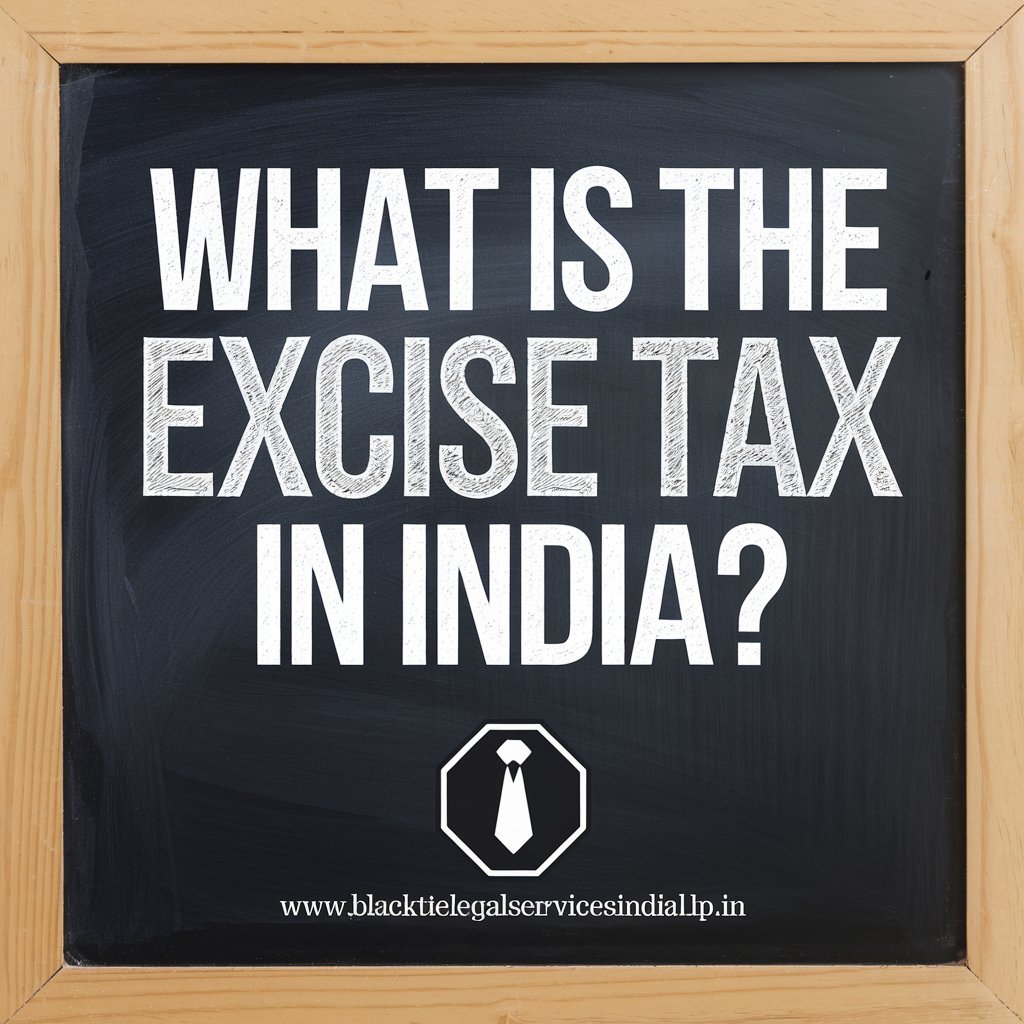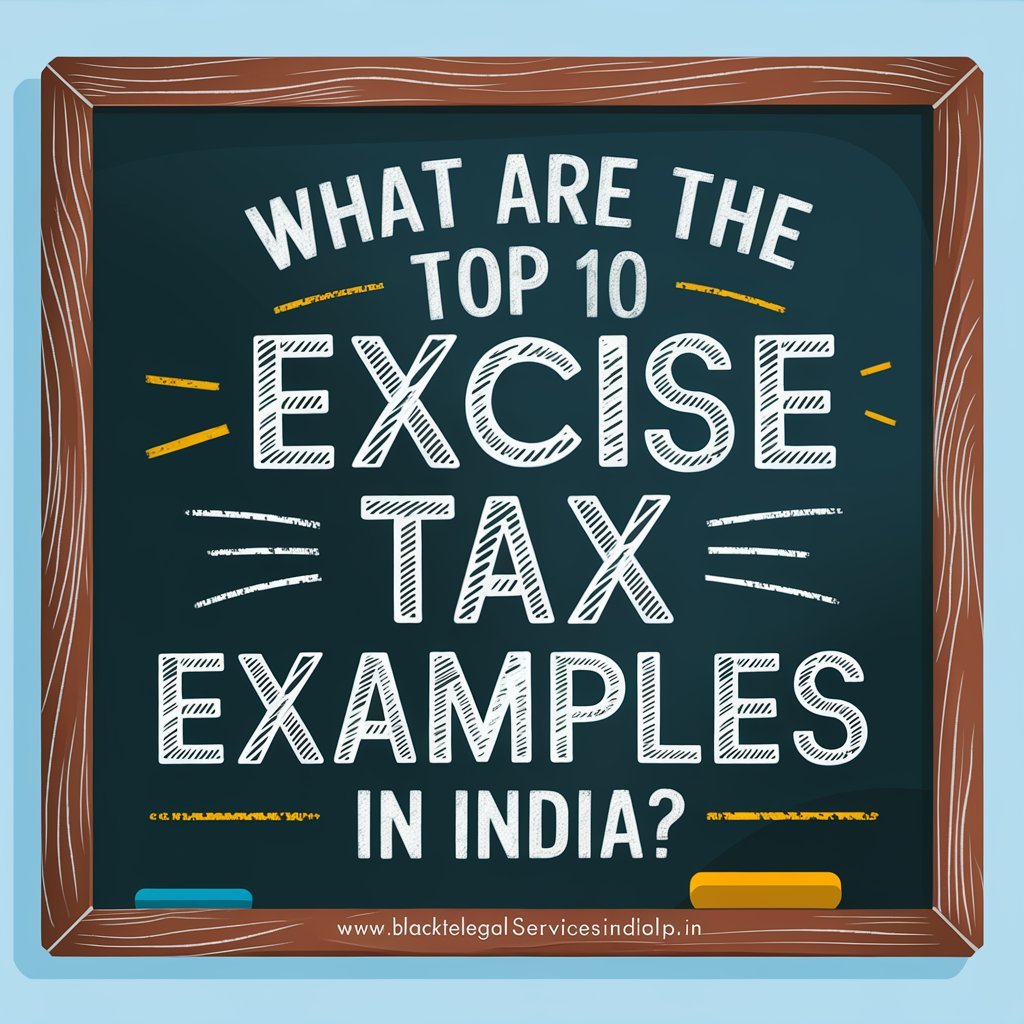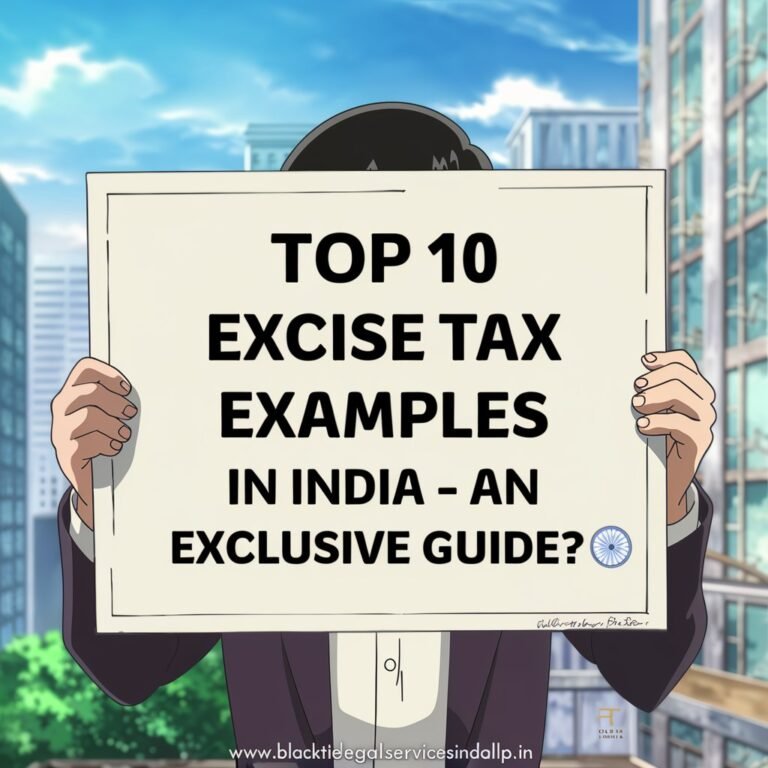In this blog, we will explore the top 10 Excise Tax Examples in India, providing information about products that continue to face excise duty even in the era of GST. Excise duty in India is an indirect tax levied on the manufacture or production of specific goods within the country. While many goods are now subject to the Goods and Services Tax (GST), excise duties are still applicable on certain items due to their importance in sectors such as energy, health, and luxury. From petroleum products to tobacco, excise duties help the government regulate industries and generate revenue.
What is the Excise Tax In India?
Excise duty in India, also known as central excise duty, is a type of indirect tax levied by the government on the manufacture or production of goods within the country. Here’s an overview.
1. Applicable to manufacturing: Excise duty is levied on goods manufactured or produced in India, not on imported goods (subject to customs duty).
2. Levy Point: It becomes payable immediately after the manufacture or production of the goods, even before they are sold or consumed.
3. Taxable goods: This generally applies to tangible goods, except those exempted under the law or subject to other taxes such as GST.
4. Taxpayer: The responsibility of paying excise duty lies with the manufacturer or producer of the goods.

What are the Top 10 Excise Tax Examples in India?
1. Motor Fuel
2. Cigarettes
3. Phone Service
4. Airline Tickets
5. Health Insurance Plans
6. Hotel Rooms
7. Imported Goods
8. Medical Devices
9. Alcohol Excise Taxes
10. Carbon
To Filing All Types of Taxes Contact Our Expert Legal Adviser

1. Motor Fuel
Motor fuels, such as petrol (gasoline) and diesel, are a prime example of goods subject to excise duty in India. These fuels remain outside the scope of GST and continue to be subject to excise duty, making them an important source of revenue for the central government.
1. Excise Duty: Levied at the production/refinery stage, outside patrol.
2. Revenue: Major contributor to central government income.
3. Additional Charges: Includes Road and Infrastructure Cess.
4. Impact: Influences retail price, combined with state VAT.
5. It: Funds infrastructure and welfare schemes.
2. Cigarettes
Cigarettes are a prime example of products attracting excise duty in India. The government imposes high excise duty on cigarettes to generate revenue and discourage consumption due to health-related problems.
1. High Taxation: Excise duty consists of basic excise duty and National Calamity Contingency Duty (NCCD).
2. On a per unit basis: Tax is levied per 1,000 cigarette sticks, with a higher tax on long cigarettes.
3. Revenue Contribution: Important source of government revenue.
4. Public health: Higher rates are aimed at curbing tobacco consumption.
3. Phone Service
Phone services in India were historically subject to excise duty under the category of “telecommunication services”. However, with the implementation of GST in July 2017, excise duty on services including phone and telecommunication services has been replaced by GST. Currently, a GST rate of 18% applies to phone services, including calls, internet, and other telecommunication-related charges.
If you are looking for examples of excise duty levied on goods rather than services, phone devices such as handsets and accessories can be searched under the excise duty regimes that existed before GST was introduced. Let me know how you would like to refine this!
4. Airline Tickets
Excise duty applies to airline tickets under the category of service tax, which has been replaced by GST for most services. However, there are still instances where excise duty-related components indirectly impact airline operations.
1. Fuel surcharge: Excise duty on aviation turbine fuel (ATF) affects airline operating costs. Though passengers do not pay this tax directly, it affects ticket prices due to the high fuel surcharge.
2. Passenger Service Fee (PSF): Although not directly classified as an excise duty, various surcharges associated with airport services may have an excise component.
3. Luxury classification: First class or business class tickets sometimes include components affected by taxes on luxury services, which were previously subject to excise duty.

5. Health Insurance Plans
Health insurance plans are financial instruments designed to cover medical expenses incurred due to illness, injury or other health-related issues. These plans provide financial protection and ensure access to quality healthcare services. Here is an overview:
1. Sum Assured: Maximum payout.
2. Network Hospitals: Cashless treatment.
3. Waiting period: The time before coverage begins.
4. Pre-existing Diseases: Covered after a waiting period.
5. No Claim Bonus: Discount for claim-free years.
5. Co-pay clause: Shared claim cost.
6. Hotel Rooms
In India, hotel rooms may also be subject to excise duty in specific cases, but regulation has largely fallen under the Goods and Services Tax (GST) framework since its introduction in 2017. However, certain types of hotel services are still subject to excise laws or special taxes.
1. Luxury Tax: Before GST, luxury tax was applicable on hotels offering premium accommodation (often 5-star properties) or certain other luxury services, the rates of which varied from state to state.
2. Excise Duty and GST Relation: After GST, excise duty does not apply to hotel accommodation services, and this service comes under the scope of GST.
7. Imported Goods
Customs duty is applicable on goods imported into India, not excise duty. Customs duty is an indirect tax levied by the Indian government on goods brought into India from abroad. While excise duty is applicable on goods manufactured or produced in India, customs duty is applicable when goods are imported.
1. Exemptions: Certain goods may be exempted from certain duties under free trade agreements (FTAs) or preferential trade arrangements.
2. Special Economic Zones (SEZs): Goods imported into SEZs are exempted from most customs duties subject to specific conditions.
8. Medical Devices
Medical devices are another important category of goods subject to excise duty in India, although their nature has also changed over time with changes in the taxation system. Before the implementation of the Goods and Services Tax (GST) in 2017, medical devices were subject to excise duty under the Central Excise Act. However, after the implementation of GST, medical devices, like other goods, also primarily came under the GST regime.
1. Before GST (before 2017): Medical devices were taxed under excise duty, the rates of which ranged from 1% to 12%.
2. After GST (2017): A 5% GST rate will be applicable on medical devices.
3. Example: Surgical instruments, diagnostic equipment (MRI, X-ray), prosthetics, and oxygen concentrators are all taxed under the 5% GST bracket.
4. Exceptions: Certain life-saving equipment or equipment for government use may be exempt or may be subject to different rates.
9. Alcohol Excise Taxes
In India, alcohol excise duties are an important source of revenue, but they are subject to regulation by both the center and the states, leading to a complex system. Excise duties on alcohol vary depending on the type of alcohol and the state in which it is sold.
Alcohol excise duty is a major source of revenue for states, especially for liquor, which is heavily taxed. Beer and wine generally attract a lower duty. Additionally, alcohol is excluded from GST, so excise duty continues to apply. Rates can vary significantly across states, with some states such as Goa levying lower taxes, while others such as Maharashtra levy higher duties on alcohol.
10. Carbon
It sounds like you’re referring to “carbon” in the context of the excise tax examples, but this is not generally a direct category subject to excise tax. However, if you’re referring to carbonated beverages or carbon-related products, here’s some relevant information.
Carbon black: Carbon black, a fine black powder made from burning hydrocarbons, is used in products such as tires, coatings, and inks. It is subject to excise duty if produced and sold within the country, although specific excise rules apply to industrial products.
Conclusion:
Excise duties in India primarily target the production of certain goods, with the aim of generating government revenue and regulating specific sectors such as petroleum, tobacco, alcohol, and luxury goods. While many products have migrated to the GST regime, excise duties continue to apply to select goods such as petroleum products, tobacco, alcohol, and certain industrial goods, reflecting their strategic importance and potential environmental or health concerns. The examples mentioned above give a glimpse of how excise duties remain an important tool in India’s tax structure, helping to shape consumer behavior and manage industry-specific regulations.
FAQs
Q1. What do you mean by excise tax?
Excise duty is an indirect tax levied on the manufacture or production of specific goods such as alcohol, tobacco, and petroleum. It is paid by the manufacturer and passed on to the consumer, helping to generate revenue and regulate industries.
Q2. Who pays excise duty?
Excise duty is paid by the manufacturer or producer of goods in India, who may pass it on to the consumer.
Q3. Is GST and excise tax the same?
No, GST and excise duty are not the same.
GST is a unified tax on goods and services, which replaces several indirect taxes, including excise duty for most items.
Excise duty is levied on the manufacture of specific goods such as petroleum, tobacco, and alcohol, which are outside the GST regime.
Q4. What is an excise tax dictionary?
Excise Duty: A tax levied on the manufacture, sale, or consumption of specific goods, usually paid by producers but passed on to consumers.
Q5. What is the 1% excise tax?
The 1% excise duty is a low rate applied to specific goods or services, often to support small-scale industries. It was introduced to reduce the tax burden but has largely been replaced by GST, except for a few categories such as small-scale manufacturing.


Add a Comment